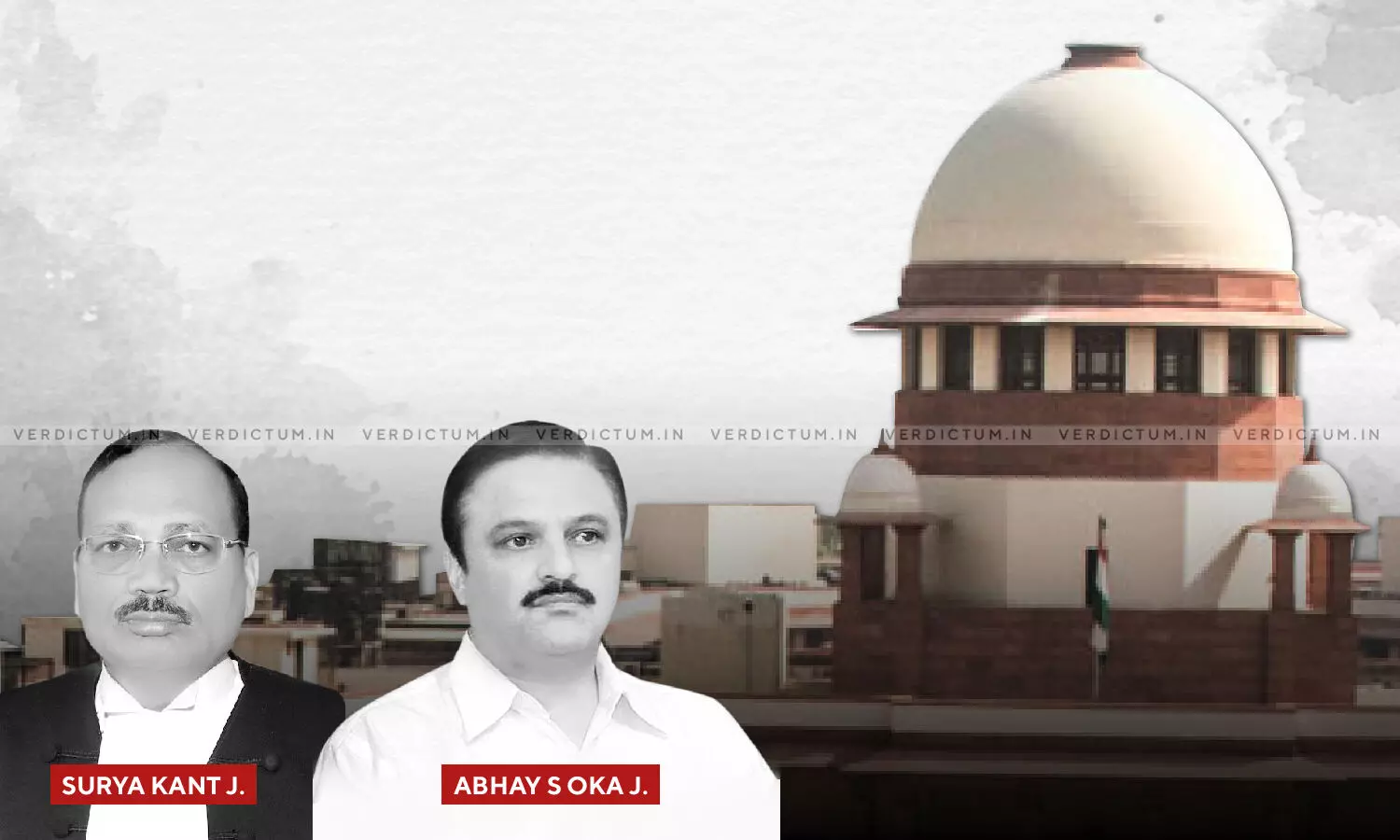
Annulment Of Arbitration Clause Can't Be Legitimized By Deficiency Of Words In Agreement Indicating Intention To Arbitrate- SC
 |
|The Supreme Court has observed that the arbitration clause cannot be annulled for deficiency of words in agreement which otherwise fortifies the intention of parties to arbitrate disputes.
"The deficiency of words in agreement which otherwise fortifies the intention of the parties to arbitrate their disputes, cannot legitimise the annulment of arbitration clause.", the Bench of Justice Surya Kant and Justice Abhay S. Oka observed.
The facts of the present case were that the Appellant desired to develop the land owned by it through construction of residential and commercial complexes. Respondent No.1 who is a developer engaged approached the Appellant and offered to develop the site.
The Appellant and the developer, thus, entered into a 'Development Agreement' and pursuant thereto the Appellant also executed a General Power of Attorney (GPA), in favor of the developer.
As per the said agreement the developer shall construct "Amay Apartments" within a period of 15 months which was extendable, incumbent on payment of a penalty amount.
However, the developer failed to complete the development works within the stipulated time following which the Appellant sent a Legal Notice to the developer seeking to terminate the Development Agreement.
The Appellant invoked the arbitration clause in the Development Agreement and issued a notice to this effect to the developer regarding referral of the dispute to Shyam Rajale as the sole arbitrator.
The developer failed to respond to it which led the Appellant to file an application before the High Court under section 11 of the Arbitration and Conciliation Act, 1996.
It was contended on behalf of the Respondents-Developer before the High Court that the contract lacked the express wording necessary for it to be considered a valid and binding agreement to refer the disputes to arbitration.
The High Court accepted the contentions of the Respondents and dismissed the application as not maintainable.
Aggrieved, Appellants approached Supreme Court.
Advocate Vatsalya Vigya represented the Appellants whereas Notice was issued to the Respondents but they didn't enter appearance. Therefore the Court proceeded with the matter ex-parte.
The Supreme Court observed that the Development Agreement clearly enunciated the mandatory nature of reference to arbitration by using the term "shall be referred to arbitration of a Sole Arbitrator mutually appointed, failing which, two Arbitrators, one to be appointed by each party to dispute or difference".
The Court further noted that the method of appointing the third arbitrator has also been clearly mentioned wherein the two selected Arbitrators are to appoint a third arbitrator.
The Court held that these recitals strongly pointed towards an unambiguous intention of the parties at the time of formation of the contract to refer their dispute(s) to arbitration.
"We find that Clause 18 luminously discloses the intention and obligation of the parties to be bound by the decision of the tribunal, even though the words "final and binding" are not expressly incorporated therein. It can be gleaned from other parts of the arbitration agreement that the intention of the parties was surely to refer the disputes to arbitration. In the absence of specific exclusion of any of the attributes of an arbitration agreement, the Respondents' plea of non existence of a valid arbitration clause, is seemingly an afterthought.", the Court observed.
The Court noted that Clause 18, contemplated a binding reference to arbitration between the parties. Therefore, the Court held Clause 18 of the Development Agreement to be a valid arbitration clause.
Consequently, the impugned Judgment and Order passed by the Bombay High Court was set aside.
Before parting with the Judgment, the Court appointed Justice P.V. Hardas former Judge of the Bombay High Court, as the Sole Arbitrator to resolve all disputes/differences between the parties.
Cause Title- Babanrao Rajaram Pund v. M/s. Samarth Builders & Developers & Anr.
Click here to read/download the Judgment